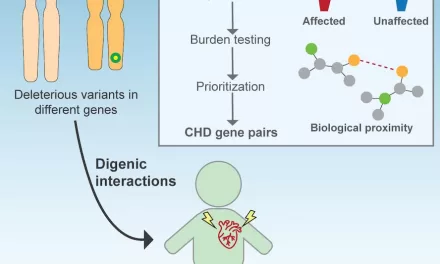A new study published in Eating and Weight Disorders—Studies on Anorexia, Bulimia and Obesity has revealed a concerning link between excessive screen time, particularly on social media, and the development of eating disorder symptoms in young adolescents. The study, conducted among 9–14-year-olds, highlights how increasing time spent online may contribute to worrying trends related to body image and unhealthy eating behaviors.
The research, based on data from 11,875 participants in the Adolescent Brain Cognitive Development (ABCD) study, found that young adolescents who spend more time on screens are at a higher risk of developing eating disorder symptoms. These symptoms include obsessive worry about gaining weight, associating self-worth with body image, engaging in compensatory behaviors to avoid weight gain, binge eating, and experiencing distress related to binge eating.
Dr. Jason M. Nagata, associate professor of pediatrics at the University of California, San Francisco, and senior author of the study, explained the dangerous cycle facilitated by social media. “Social media promotes constant comparisons to peers and exposure to unattainable body ideals,” Nagata stated. “This can contribute to dissatisfaction with one’s own body, reduced self-esteem, and unhealthy attempts to control weight, all of which increase the risk of developing eating disorders and other mental health issues.”
The study also explored the relationship between problematic social media use, characterized by a dependence that interferes with daily life, and eating disorder symptoms. The researchers suggest that social media overconsumption may not only increase exposure to unrealistic body ideals but may also lead to impulsive behaviors, further reinforcing tendencies like binge eating.
Nagata urged families to be proactive in addressing the issue: “Adolescents should limit social media that encourages eating disorders and appearance comparisons. Parents can play an important role by developing Family Media Use Plans and holding open conversations about problematic screen use and disordered eating concerns.”
This study builds on previous research into eating disorders, which have the highest mortality rate among psychiatric disorders. As Kyle T. Ganson, Ph.D., assistant professor at the University of Toronto’s Factor-Inwentash Faculty of Social Work and co-author of the study, noted, “This study underscores the need for more research on the relationship between social media, problematic screen use, and mental well-being in early adolescence. Future research should focus on identifying specific types of content that pose the greatest risk for young people developing eating disorder symptoms.”
As screen time continues to rise among adolescents, this study provides a critical warning for parents, educators, and policymakers to be vigilant about the mental health implications of excessive social media use and its potential to exacerbate eating disorders.
The study can be found in Eating and Weight Disorders—Studies on Anorexia, Bulimia and Obesity, under the title, Screen time, problematic screen use, and eating disorder symptoms among early adolescents: findings from the Adolescent Brain Cognitive Development (ABCD) Study (DOI: 10.1007/s40519-024-01685-1).












